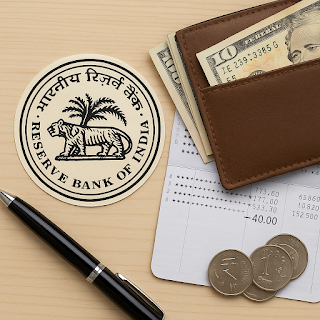Why Prepaying Your Home Loan Could Be Draining Your Wealth – And How to Make It Work for You by
For many Indian homeowners, the idea of prepaying a home loan seems like an obvious win. After all, paying off debt gives a sense of relief and security. But what if that “win” is actually costing you tens of lakhs in potential wealth?
In this article, we’ll explore why prepaying your home loan might not always be the smartest financial decision and how you can use your money strategically to grow long-term wealth.
The Common Homeowner Scenario
Imagine this scenario:
-
Outstanding home loan: ₹25 lakh
-
Remaining tenure: 20 years
-
Extra cash available: ₹3 lakh
-
Tax benefits: Not applicable under the new tax regime
Most homeowners would instinctively consider using the ₹3 lakh to prepay part of the loan. But the real question is: how should you use it to create the maximum financial benefit?
Four Strategies for Handling Your Home Loan
1. Prepay ₹3 Lakh and Reduce EMI
The simplest approach is to use your ₹3 lakh to reduce your monthly EMI.
-
EMI reduction: ₹2,509 per month
-
Total interest saved over 20 years: ₹3.02 lakh
While this method is safe and reduces monthly pressure, it does little to grow wealth. Essentially, your ₹3 lakh is “locked” in the form of lower interest payments, rather than being put to work for higher returns elsewhere.
2. Prepay ₹3 Lakh, Reduce EMI, and Invest the EMI Savings
A smarter approach balances debt reduction and wealth creation.
-
Prepay ₹3 lakh
-
Reduce EMI by ₹2,509
-
Invest the EMI savings monthly in a mutual fund SIP
Assuming a 12% annual return, this investment could grow to approximately ₹28 lakh in 20 years.
This approach allows you to reduce debt slightly while building wealth simultaneously, providing a balance between safety and growth.
3. Prepay ₹3 Lakh but Keep EMI Unchanged
If your priority is debt freedom, you could prepay ₹3 lakh but continue paying the same EMI.
-
Resulting tenure: Reduced from 20 years to 16 years
-
Total interest saved: ₹9.42 lakh
This approach is ideal for those who value becoming debt-free quickly over maximizing returns. It accelerates financial freedom without changing your monthly cash flow.
4. Don’t Prepay at All – Invest Instead
Counterintuitive to many, this strategy could generate the most wealth:
-
Keep the home loan as-is
-
Invest ₹3 lakh directly into equity mutual funds or other growth assets
-
Assumed annual return: 13%
In 20 years, your investment could grow to ₹34.5 lakh – far more than the interest you would save by prepaying the loan.
Even while paying EMIs regularly, your money compounds at a higher rate than the loan interest, turning your surplus cash into a wealth-building engine.
The Most Common Mistake
The real wealth-leaking mistake is not prepaying, but reducing EMI and spending the savings on lifestyle upgrades.
-
EMI reduction: ₹2,509
-
Additional monthly spending: ₹2,509
In this case, the prepayment feels good psychologically, but it doesn’t increase your wealth. Over time, such habits can cost you tens of lakhs.
Lesson: EMI savings should be reinvested or used strategically; otherwise, they are just lifestyle leaks.
Debt as a Strategic Financial Tool
Many Indian homeowners view debt negatively, but home loans can be one of the cheapest and most strategic forms of leverage:
-
Compare interest vs. investment returns:
A 7% home loan vs. 12–13% potential returns from equity investments makes investing more profitable than prepaying. -
Balance risk and reward:
Prepaying reduces guaranteed interest payments but caps wealth growth. Investing carries risk but can yield higher long-term returns. -
Consider tax implications:
Under the new tax regime, many homeowners lose the interest deduction, making investment strategies even more attractive.
Case Study: ₹25 Lakh Loan, 20-Year Tenure
| Option | Action | Wealth Impact | Interest Saved | Comments |
|---|---|---|---|---|
| 1 | Prepay ₹3L, reduce EMI | ₹3.02L saved | ₹3.02L | Safe, low growth |
| 2 | Prepay ₹3L, reduce EMI, invest EMI savings | ₹28L | Minor | Balanced strategy |
| 3 | Prepay ₹3L, keep EMI | ₹9.42L interest saved | ₹9.42L | Quick debt freedom |
| 4 | Don’t prepay, invest ₹3L | ₹34.5L | 0 | Highest long-term wealth |
It’s clear that simply reducing EMI without investing the savings is the least effective way to grow wealth.
Smart Steps to Optimize Home Loan and Wealth
-
Evaluate your loan and interest rate: Compare it with potential investment returns.
-
Set clear financial goals: Debt freedom vs. wealth maximization.
-
Invest wisely: Consider mutual funds, SIPs, or retirement-focused portfolios.
-
Avoid lifestyle inflation: Don’t let EMI savings get eaten up by unnecessary spending.
-
Review regularly: Track your investments and adjust contributions as needed.
Conclusion
Paying off a home loan early feels satisfying, but it may not always be the best way to grow wealth.
-
Simply reducing EMI saves modest interest but limits potential wealth.
-
Prepaying while investing EMI savings offers a balanced approach.
-
Investing the lump sum instead of prepaying can generate the maximum wealth over time.
Debt is not inherently bad—it’s a tool. Using manageable debt strategically while letting your money grow can yield far higher financial freedom and wealth.
A ₹3 lakh decision today could turn into over ₹30 lakh in wealth in 20 years if used wisely.
Remember: Emotional satisfaction from paying off debt is temporary. Long-term wealth comes from making your money work harder than your loan.





Comments
Post a Comment